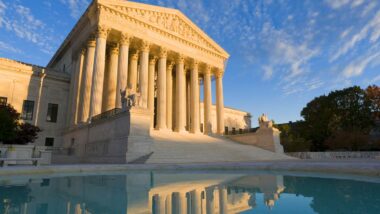Top Class Actions’s website and social media posts use affiliate links. If you make a purchase using such links, we may receive a commission, but it will not result in any additional charges to you. Please review our Affiliate Link Disclosure for more information.
A student filed a class action lawsuit against Cornell University over claims that she lost the quality of education she paid for due to COVID-19.
Plaintiff Olivia Haynie says she is an undergraduate student at the university, studying architecture, which requires extensive in-person instruction, student presentations and access to fabrication facilities.
She alleges none of these resources are available to her as in-person classes have been suspended because of the coronavirus.
Haynie claims that she paid approximately $11,275 in tuition fees to Cornell for the spring 2020 semester. She says no refund has been provided to her, even though in-person classes have been suspended as of March 13, 2020.
In addition to tuition, the plaintiff allegedly paid a $500 student health fee and a $125 student activity fee for the spring semester. Haynie states she has not been provided any refunds for these fees, despite the fact that all students had to leave the campus on March 29, 2020.
Did your college suspend in-person classes for the spring 2020 semester? Get legal help by clicking here.
The Cornell University class action lawsuit states that the university announced on March 13, 2020 that all classes were going to be suspended for two weeks, in addition to a spring break scheduled between March 29, 2020 and April 6, 2020.
Haynie claims that students were discouraged from contacting their professors during the time classes were suspended.
Following the two week suspension, Cornell announced that classes would be held remotely through online formats, the plaintiff maintains.
“As a result of the closure of Defendant’s facilities, Defendant has not delivered the educational services, facilities, access and/or opportunities that Ms. Haynie and the putative class contracted and paid for,” the Cornell University class action lawsuit states.
The plaintiff notes that online learning being offered by Cornell is “subpar” in numerous aspects, including lack of facilities, materials and access to faculty. In addition, Haynie maintains that students have been deprived of the opportunity to work collaboratively with their fellow students, as well as in-person feedback and critique from their professors.
The Cornell class action lawsuit argues that students are entitled to the fees and tuition for in-person educational services and facilities that the defendant has not provided, even if Cornell had no choice but to cancel in-person classes.
“Plaintiff seeks, for herself and Class members, Defendant’s disgorgement of the prorated portion of tuition and fees, proportionate to the amount of time that remained in the Spring Semester 2020 when classes moved online and campus services ceased being provided,” the Cornell University class action lawsuit argues.

Haynie says classes for which in-person instruction is especially crucial, such as architecture, have had access to only minimum online educational options.
The Cornell student maintains that she and other students did not choose to attend an online college, but instead chose to enroll in Cornell University in-person.
She says that the remote education being provided by Cornell is not worth the amount being charged to her and others for the spring 2020 semester.
The plaintiff argues that the tuition and fees that have been paid to Cornell do not only encompass academic instruction. That money also goes to access to facilities such as libraries, laboratories, computer labs, and study rooms, the plaintiff says.
The student claims that she and other putative Class Members have fulfilled their end of the bargain when they paid monies for the spring 2020 semester.
Haynie says the tuition for the spring semester was intended to cover in-person educational services from January 2020 to May 2020. The plaintiff states that she and possible Class Members are entitled to in-person education services through the end of the spring semester.
Common legal questions of law and fact in the Cornell University class action lawsuit include: 1) whether the defendant collected money from the plaintiff in exchange for the promise to provide services; 2) whether the plaintiff and Class Members are entitled to a refund for the part of the tuition and fees that was contracted for services and that the defendant did not provide; 3) whether the defendant is liable to the plaintiff and class members for unjust enrichment.
Prospective Class Members include: “all people who paid Cornell Spring Semester 2020 tuition and/or fees for in-person educational services that Cornell failed to provide, and whose tuition and fees have not been refunded.”
The plaintiff is represented by Philip L. Fraietta, Max S. Roberts, and Sarah N. Westcot of Bursor & Fisher PA.
The Cornell University Refund Class Action Lawsuit is Olivia Haynie v. Cornell University, Case No. 5:00-at-99999, in the U.S. District Court for the Northern District of New York.
Join a Free Coronavirus College Refund Class Action Lawsuit Investigation
If your college or university closed because of the coronavirus, but you did not receive a refund for tuition, room and board or other fees, you may be able to join this coronavirus school refund class action lawsuit investigation.
ATTORNEY ADVERTISING
Top Class Actions is a Proud Member of the American Bar Association
LEGAL INFORMATION IS NOT LEGAL ADVICE
Top Class Actions Legal Statement
©2008 – 2024 Top Class Actions® LLC
Various Trademarks held by their respective owners
This website is not intended for viewing or usage by European Union citizens.















